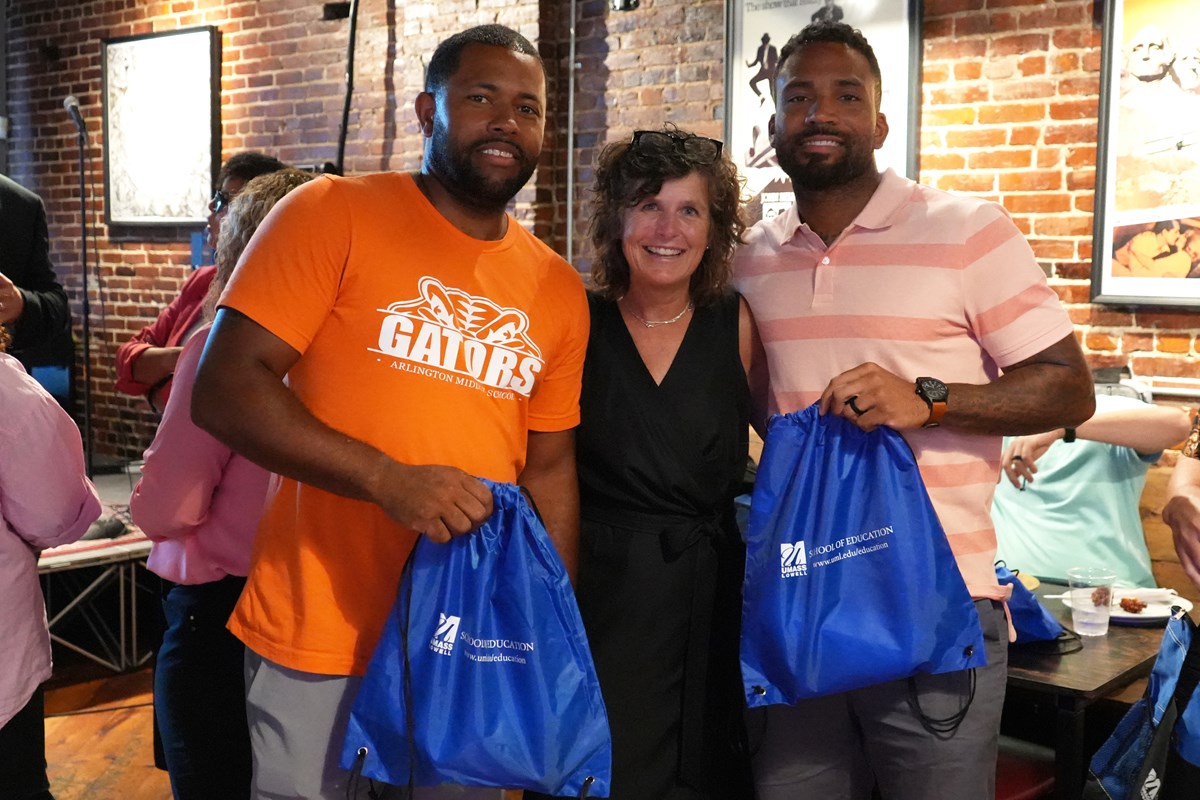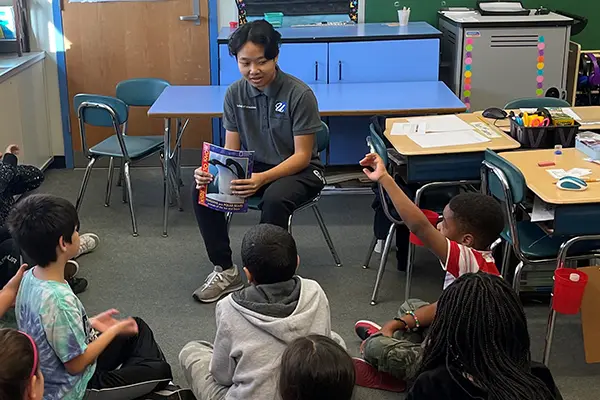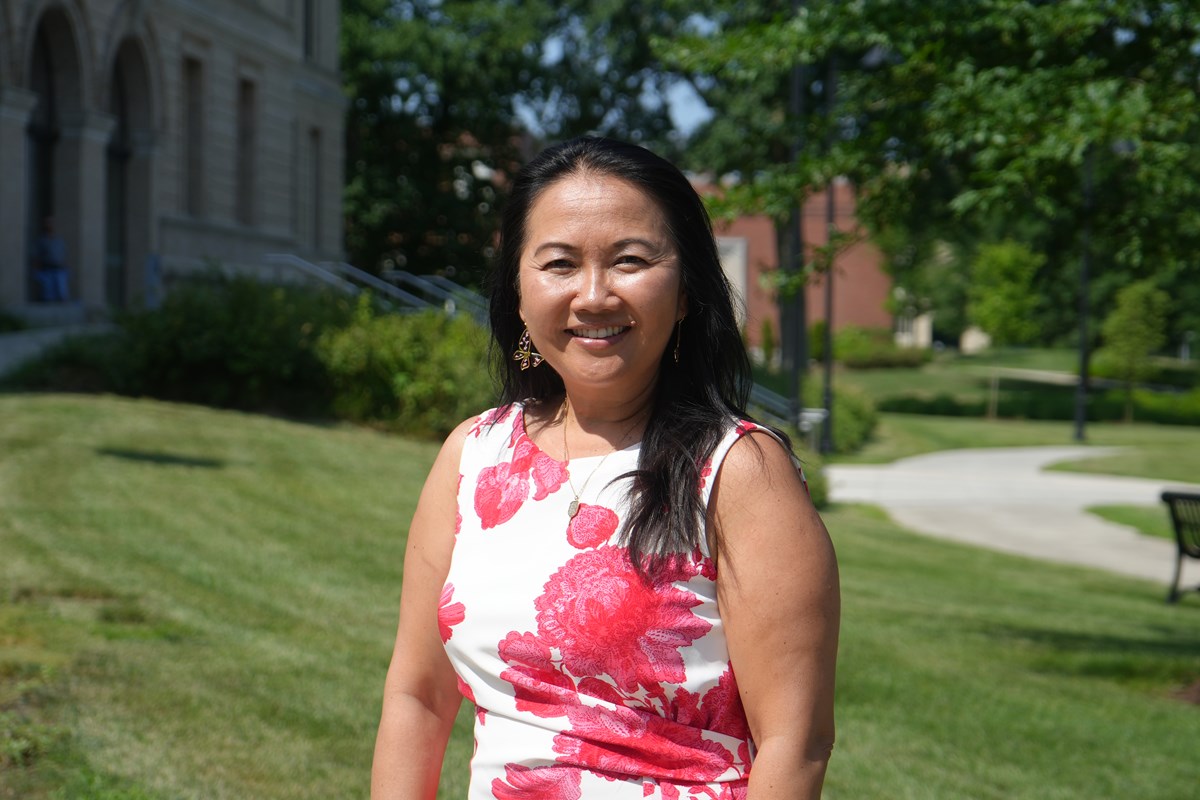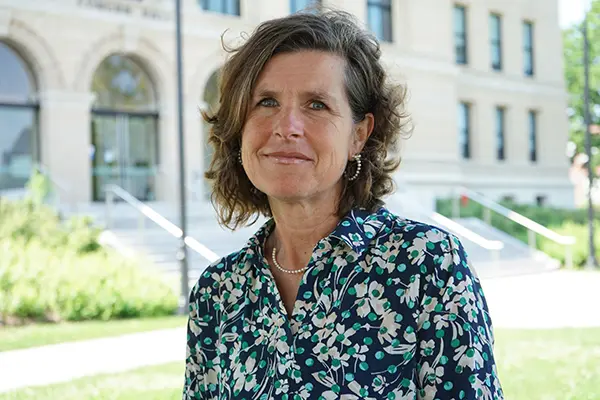 Image by K. Webster
Image by K. Webster
Christine Montecillo Leider has a $3.4 million grant to expand a bilingual teacher education program in southeastern Massachusetts and start one at UMass Lowell.
Education Assistant Professor Christine Montecillo Leider has been awarded a five-year, $3.4 million grant by the U.S. Department of Education to increase the number of certified bilingual teachers in southeastern Massachusetts – and in the Merrimack Valley cities of Lowell and Lawrence.
The grant will train 90 multilingual people who are currently teachers, education paraprofessionals, community members or high school students to be certified bilingual educators, and it will move another 35-plus along the pathway to earning both a teaching degree and the state’s bilingual education certification.
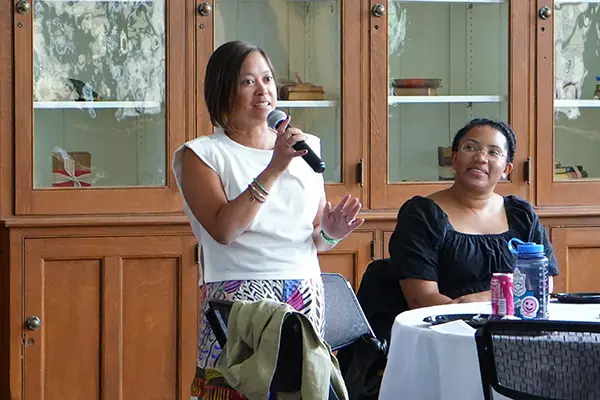 Image by Brooke Coupal
Image by Brooke Coupal
Leider speaks at an event for new UML faculty.
“We have, in general, a shortage of teachers,” Leider says. “In particular, we have a shortage of teachers who are multilingual to teach the growing population of multilingual learners in our schools.”
Under the grant, Leider will lead a team of experienced bilingual education professionals to study and expand the existing Southeast Regional Bilingual Hub, formed in 2019 under a state grant by the city of Brockton and Bridgewater State University, which in 2018 became the first school to offer the four-course graduate program leading to state certification as a bilingual teacher.
Then, building on UMass Lowell’s existing “Grow Your Own” teacher education programs, which include pre-teaching dual-enrollment programs in partnership with local high schools and community colleges and the paraprofessional-to-teacher program at the Lawrence public schools, the School of Education will build out a similar Merrimack Valley Regional Bilingual Hub to serve Lowell and Lawrence, she says.
“We’ll be learning from the community in Brockton and surrounding towns, using that to improve their program and to inform us as we build our own,” Leider says.
The Southeast Regional Bilingual Hub serves Brockton, where nearly 50% of all pre-K-12 students speak a language other than English at home, as well as Fall River, New Bedford, Randolph and Stoughton, which also have many more multilingual students than teachers. Over the past four academic years, 52 teachers and paraprofessionals with bachelor’s degrees in those towns became bilingual teachers through the hub, Leider says.
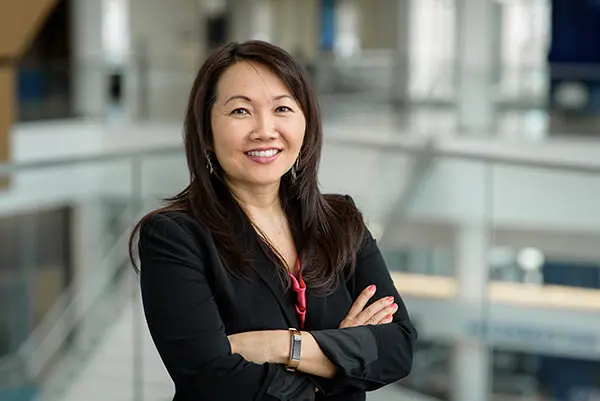 Image by Adrien Bisson
Image by Adrien Bisson
Education Associate Professor Phitsamay Uy, who will be part of the Merrimack Valley Bilingual Hub team, specializes in family and community engagement, especially among immigrants.
But Leider, who is president of the Massachusetts Association of Teachers of Speakers of Other Languages and a member of the National Committee for Effective Literacy for Multilingual Learners, says the pipeline of potential bilingual teachers needs to be expanded to meet the needs of multilingual schoolchildren.
“This grant called for a ‘Grow Your Own’ approach,” she says. “So, we thought, ‘Why don’t we look at the linguistically rich communities we already have and see how we can support them and draw on their resources?’”
That means that, under the grant, the Southeast Regional Bilingual Hub will create new bilingual teacher certification pathways for bilingual paraprofessionals (teacher aides who provide one-on-one assistance to students with disabilities or help an entire class) who do not yet have a bachelor’s degree; bilingual teachers and professionals with technical skills from other countries who are not licensed to teach in the United States; and bilingual high school students who aspire to become teachers.
Each participant in the program will get different tuition-free services, based on their individual needs, to move them toward a teaching degree, initial teacher licensure and bilingual education certification. They will then be able to teach in bilingual classrooms, English for Speakers of Other Languages (ESOL) programs, dual-language programs and sheltered English immersion programs, Leider says.
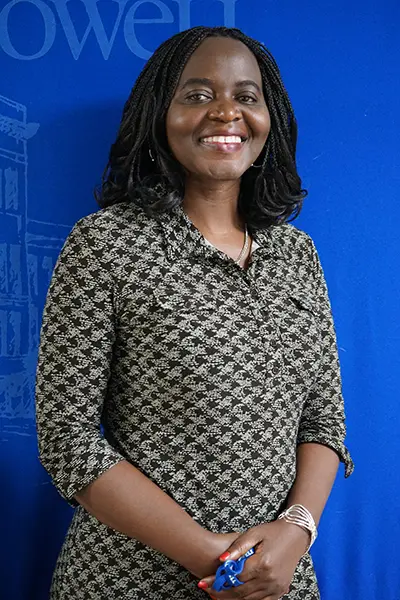 Image by K. Webster
Image by K. Webster
Education Assistant Professor Robai Werunga researches special education and language acquisition.
Those services may include ESOL adult education classes to strengthen aspiring teachers’ spoken and written English; a new class, Language of Education, designed to prepare bilingual and multilingual high school students and community members for college- and graduate-level education coursework; undergraduate and graduate classes at Bridgewater State toward a teaching degree; at least 20 hours of individual coaching and mentoring; and preparation for licensing exams.
The high school students and community members will also complete a supervised, four-week summer internship, working closely with multilingual students in the Brockton schools, she says.
During the second year of the grant, the leadership team and faculty in the UMass Lowell (UML) School of Education will do a community needs assessment in Lowell and Lawrence, where 42% and 72% of K-12 students, respectively, speak a primary language other than English at home. Then, in subsequent years, they will develop and enroll people in a similar bilingual education hub here.
“My dream would be to build the eventual bilingual education endorsement classes at UML into the B.A.Ed. program, so that students would leave ready to teach in a bilingual program,” Leider says.
Leider, who joined UMass Lowell this fall, is the principal investigator on the grant. A second-generation Filipina American who grew up in southeast Alaska, she is multilingual to varying degrees in English, Spanish, Tagalog, Bisaya and Portuguese. She started her career teaching Spanish and ESOL, and has since been a teacher educator at Boston University, Boston College and, most recently, UMass Boston.
Leider focuses much of her research on bilingual education and teacher beliefs about multilingual learners. She has found that many teachers still regard a student’s home or “heritage” language as an educational handicap rather than a benefit, she says.
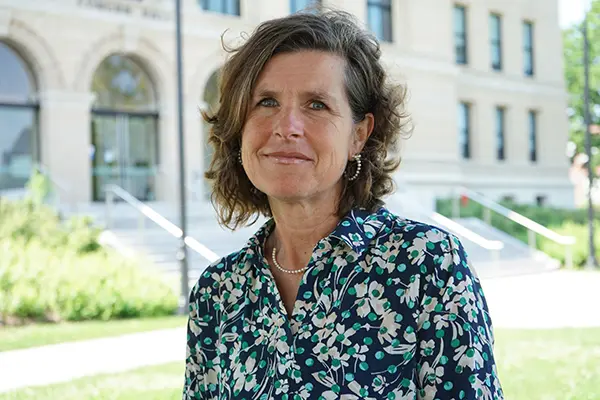 Image by Adrien Bisson
Image by Adrien Bisson
Associate Dean Stacy Szczesiul oversees UML's "Grow Your Own" teachers programs.
“One of the things I still observe today is teachers telling parents they need to stop using their heritage language with their kids because it will hurt their ability to learn English,” she says. “Research has shown that’s just not true, but it’s still a pretty common belief among teachers.”
The grant’s leadership team includes Leider; Kellie Jones, director of bilingual education for the Brockton Public Schools; Paula Merchant, instructional coach for the Southeast Regional Bilingual Hub, who will provide pathway advising, individual coaching and mentoring; and Mostafa Mouhieeddine, head of Brockton’s Adult Learning Center. Christina Dobbs, associate professor of English Education for Equity and Justice at Boston University, who has expertise in teacher professional learning development and literacy instruction for multilingual learners, will serve as external evaluator.
The Merrimack Valley Regional Bilingual Hub Development Team at UMass Lowell’s School of Education will include Leider; Assoc. Prof. Phitsamay Uy, who has expertise in family and community engagement in education, with a focus on immigrants and refugees; Asst. Prof. Robai Werunga, who researches special education and language acquisition; and Assoc. Prof. Stacy Szczesiul, who oversees UML’s “Grow Your Own” programs and is also an associate dean of the College of Fine Arts, Humanities and Social Sciences.
Two Ph.D. students at UMass Lowell and one at Boston University will also be paid to work on the grant.

